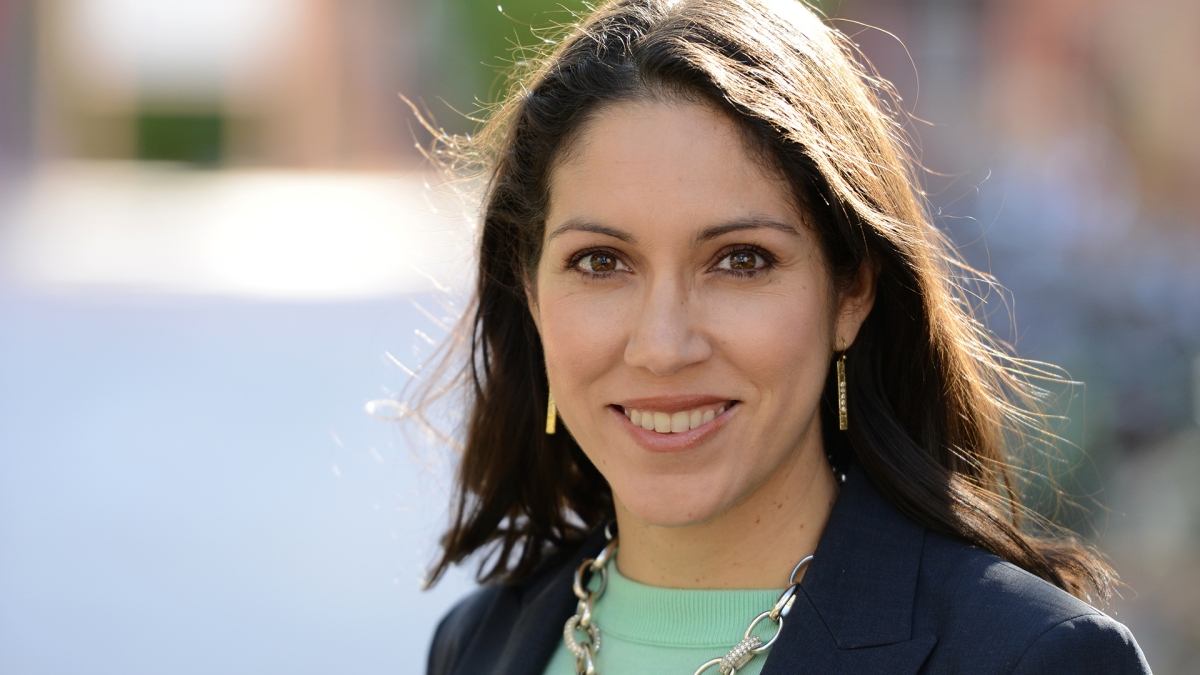Maria Anguiano joins ASU as senior vice president for strategy
A first-generation graduate herself, the new senior VP aims to find innovative ways to increase access for all students

As a first-generation college graduate, Maria Anguiano has a deep personal understanding of the difference higher education can make in someone’s life. That’s why she dedicated her career to improving access to educational attainment.
On Aug. 15, Anguiano was appointed senior vice president for strategy at Arizona State University, where she hopes to collaborate across departments to innovate new ways of targeting student populations who are not being well served.
“My mission in life, frankly, is to make sure everyone has access to an affordable, high quality education,” she said.
Anguiano’s responsibilities will include working with the members of the senior leadership team on university budget strategies, capital planning priorities, enrollment-based and other revenue development opportunities, and multi-year strategies to support operating and capital needs at the program level. Anguiano will also work to identify and further develop opportunities for ASU programs in California, refine and improve the tools available for budget analysis, and prepare the annual operational and financial review presentation to the Board of Regents.
A graduate of Claremont McKenna College, where she earned dual degrees in economics-accounting and Spanish, and the Stanford Graduate School of Business, where she earned her MBA, Anguiano has served as vice chancellor of planning and budget at University of California, Riverside. She also has experience in the private sector, working for investment bank Barclays Capital and accounting services network Deloitte & Touche.
Most recently, she served as chief financial officer for the Minerva Project, a for-profit capital venture startup that provides infrastructure for the nonprofit Minerva Schools at KGI, an online residential four-year undergraduate program.
ASU Now talked to Anguiano about her decision to come to ASU, and what the university can expect in welcoming her into the Sun Devil community.
Question: Why did you leave the Minerva Project for ASU?
Answer: As my philosophy around higher education evolves, the more I realize it’s not one-model-fits-all. We need many educational delivery models in order to provide the type of access that can transform lives. To me, there’s no institution other than ASU that is really willing to take that on. The Minerva model works exceptionally well for a very particular set of students — 18- to 24-year-olds who can be fully immersed in a residential program. My interest lies in providing broad access to the full spectrum of students that exist in the world. I worked on broad access at UC Riverside and I worked on innovative models at Minerva but ASU gives me the opportunity to do both.
Q: What excites you about that opportunity?
A: I thrive on getting things done, so working in a fast-paced environment that is redefining what a 21st-century public research university is and can be is very exciting for me. I think there is a long way to go in improving access to education and delivery models to certain types of populations of students who are still not being well served by our current models. So I’m excited to work with a group of people at ASU that continue to push the envelope of what is possible.
Q: When did you know you wanted to work in higher education?
A: Since middle school, when I was class treasurer, I’ve been interested in leadership and the effective use of resources to accomplish goals, so working in finance and strategy was a natural fit for me. I also have a passion for education. My mom only graduated from the sixth grade but I was lucky enough to get a master’s degree from Stanford business school. The only difference between us was living in a society that provided access to education to low-income students. So ensuring that the access I was given to education is available to everyone is a personal passion of mine. Working in higher education has given me the opportunity to combine my finance and strategy background with my passion for education.
Q: How did being a first-generation college graduate affect the work you do today?
A: The year I applied for college, my family of four had an income of $15,000. Even with a full scholarship, paying for college was very difficult for me and my family. Putting financial concerns aside, my college campus was like a foreign country to me, which made day-to-day life very lonely and difficult to navigate. Today, as a higher education leader, I try to never forget those times, because I know many of our students are struggling with the same issues today. This leads me to have a deeply student-centric view in all of my day-to-day work.
Q: What’s something you want the ASU community to know about you?
A: I have a passion for education, learning, discovery and the advancement of the human condition. Even though my background is in finance and strategic planning, I tend to be very broad and interdisciplinary in my thinking. I sit on the board of a couple of ed-tech startups as well as the James Irvine Foundation and the Board of Regents of the University of California. One of the reasons I like to do this type of diverse work is because I think the solutions to today’s most complex problems will require a coalition of people with diverse backgrounds and ideas to come together. It’s going to take ideas from everyone in the community to figure out how to solve the current gaps in the nation’s educational attainment goals. I’m highly inclusive because I believe in the old African proverb, “If you want to go fast, go alone. If you want to go far, go together.”